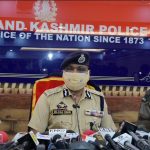Scrapping Article 370 In J&K A Tribute To Syama Prasad Mookerjee news18.com
Syama Prasad Mookerjee, who strongly opposed Article 370 that gives special status to Jammu and Kashmir, died at Srinagar Jail under mysterious circumstances after his arrest in the state on June 23, 1953.
Union Home Minister and BJP president Amit Shah on Tuesday described the government’s move to scrap Article 370 from Jammu and Kashmir as “shraddhaanjali” (tribute) to Dr. Syama Prasad Mookerjee, RSS ideologue and founder of the Bharatiya Jan Sangh.
“Dr. Syama Prasad Mookerjee strongly opposed Article 370, which gives special status to Jammu and Kashmir. He died in jail in Srinagar after his arrest in Jammu and Kashmir (on June 23, 1953). We fulfilled his dream by scrapping Article 370,” said Shah. While raising the slogan “Jana Hua balidan Mookerjee, who Kashmir humara hai”, Shah said, “Bengal and Kashmir have a relation of ‘choli-daaman’ (corset) because from this Bengal Dr. Syama Prasad Mookerjee went to Kashmir to oppose Article 370.”
“Those who are questioning the BJP’s connection with Bengal, they must read history. It was due to Dr. Syama Prasad Mookerjee’s struggle movement that Bengal is part of India. Today, Bengal is Bengal because of him,” he added.
Mookerjee, who strongly opposed Article 370 that gives special status to Jammu and Kashmir, died at Srinagar Jail under mysterious circumstances after his arrest in the state on June 23, 1953.
Two years before his death, Mookerjee had founded the Bharatiya Jana Sangh, the political arm of the RSS. He was a barrister and a member of Jawaharlal Nehru’s Cabinet. Mookerjee had then been imprisoned for allegedly violating prohibitory orders issued by the then state government of Sheikh Abdullah.











Leave Your Comment